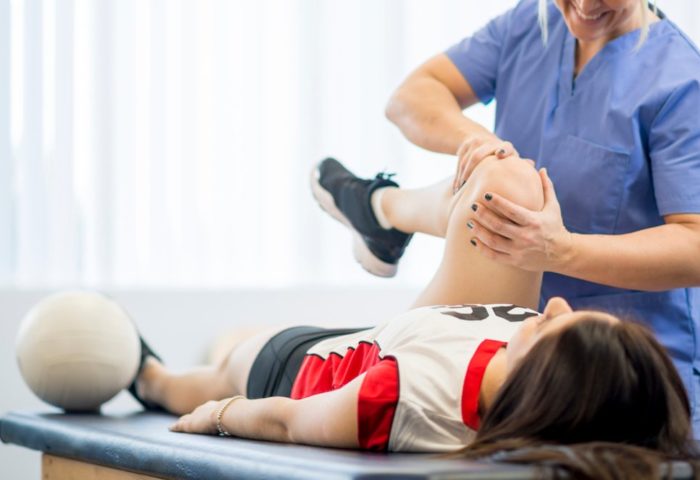Sports medicine is typically a sub specialty and most sports doctors will go on to complete an MD or a DO degree. These are 4 tp 4.5 year programs and the students will have to complete their clinical residency. In addition to this, you will have to get a Certificates of Added Qualifications (CAQs), specifically for Sports Medicine.
In order to become a sports medicine practitioner , you are also required to complete a 2-year sports medicine fellowship at a rehabilitation facility, university athletic department or hospital. In these two years, you will be able to treat and learn about different kinds of athletic-related injuries and will learn diagnosis and treatment methods. In addition, you will gain experience in rehabilitative techniques, orthopedic surgeries, performance psychology, brain trauma and nutrition. Orthopedic surgeons can also apply for fellowships in these particular fields but they do not require the added qualification of CAQ certificate.
Career as Sports Medicine Practitioner
A career in sports medicine is an interesting option if you are interested in exercise, medicine or sports science. As a medical professional qualified in sports medicine you could work with healthy athletes and help them optimize their athletic performance or you could also work with injured people who might not necessarily be athletes.
Apart from this, sports medicine offers career options to students who have an interest in helping athletes via the psychology or nutrition fields. A sports doctor might treat patients in a clinic or hospital setting. On the other hand, some sports doctors also work exclusively with a specific sports team and may also accompany the players as they travel to different tournaments.
Sports Medicine practitioners have varied options to choose from:
Primary Care doctors- Primary care sports-medicine doctors are essentially non-surgical doctors. They are responsible for diagnosing, preventing and treating all sports-related injuries. These are the doctors who accompany professional sports teams and athletes and provide instantaneous assistance in case of any injury. They develop plans to assist, treat and rehabilitate different areas of the body post injury or surgery. Additional responsibilities such as diagnosing concussions, conducting any physicals and clearing the players to participate in the sporting activities, are all part of their responsibilities.
Orthopedic Surgeons- These surgeons operate on skeletal and muscular problems. This could include repairing connecting tissues, broken bones and ligaments. They also attend to surgical issues that involve the foot and ankle, hip, hand, shoulder, spine and knee. A primary care sports-medicine doctor will generally refer an injured athlete to an orthopedic surgeon in case a surgery has to be carried out.
Sports Psychiatrist- Competition is very high in the sports field and it is critical to assess and monitor an athlete’s mindset and mental condition. This is due to the fact that many athletes experience success at a very early age, and many areas of their lives are left undeveloped. A sports psychiatrist treats an athlete who lacks confidence, has mental roadblocks or one who suffers from any off-the-field issues, such as eating disorders, physical aggressiveness, steroid abuse or any post-athletic career concerns.
Some sports doctors also prefer not to work with any individual clients and opt for research positions. They may work with research institutes or with pharma companies. The sports medicine landscape is vast and varied. No matter which field you eventually veer towards, sports medicine is definitely an interesting and lucrative career choice particularly if you have an inherent interest in sports.
